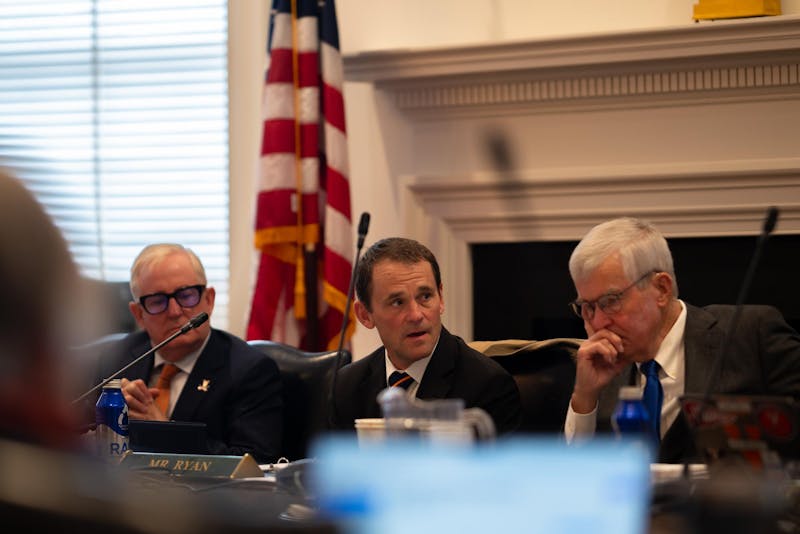
University of Virginia President Jim Ryan announced his resignation to the university community on Friday afternoon, following the Board of Visitors’ acceptance of his resignation on Thursday. In a statement sent via email, Ryan revealed that remaining in his position could jeopardize employees’ jobs, researchers’ funding, and students’ financial aid and visa access.
“I am inclined to fight for what I believe in, and I believe deeply in this University. But I cannot make a unilateral decision to fight the federal government in order to save my own job,” Ryan wrote.
Robert Hardie, the outgoing Rector of the Board, confirmed in a statement to The Cavalier Daily that he had accepted Ryan’s resignation on behalf of the Board “with profound sadness.” He praised Ryan’s leadership, stating, “Jim Ryan has been an extraordinary president of this great University. He has led our institution to unprecedented heights, always doing so with grace and humility. U.Va. has forever been changed for the better as a result of Jim’s exceptional leadership.”
Federal Investigation and Pressure
This resignation follows an ongoing investigation by the Department of Justice into Ryan’s leadership, particularly his refusal to dismantle Diversity, Equity, and Inclusion (DEI) policies at the University. The New York Times reported that department officials demanded Ryan’s resignation during private negotiations with the Board of Visitors.
Assistant Attorney General Harmeet Dhillon for the Civil Rights Division emphasized the Department’s stance, stating, “When university leaders lack commitment to ending illegal discrimination in hiring, admissions, and student benefits – they expose the institutions they lead to legal and financial peril. We welcome leadership changes in higher education that signal institutional commitment to our nation’s venerable federal civil rights laws.”
Deadline and Compliance Issues
At the end of April, the Department of Justice issued a letter to the University, setting a deadline of May 2 for the University to provide a report proving it had fully dismantled all DEI initiatives and policies. This deadline was later extended to May 30. It remains unclear whether the University submitted the required report.
The Department of Justice alleges that Ryan failed to comply with the directive to dismantle DEI programs and misrepresented his administration’s efforts to comply with federal law. University spokesperson Bethanie Glover stated that the University is cooperating with the Justice Department, noting, “UVA is committed to complying with all federal laws and has been cooperating with the Department of Justice in the ongoing inquiries.”
Political and Financial Implications
The Board dissolved the Office of DEI and Community Partnerships on March 7, following a directive from President Donald Trump’s administration. They requested that Ryan and his administration submit a document within 30 days detailing actions taken to comply with the Board’s directive. However, this document was protected under “presidential communications” when requested by The Cavalier Daily under the Freedom of Information Act.
The Department of Justice warned that if Ryan did not resign, the University risked losing hundreds of millions in research funding, according to the New York Times. Senators Tim Kaine and Mark Warner issued a joint statement linking Ryan’s resignation to what they described as President Trump’s “culture war” against American universities. “It is outrageous that officials in the Trump Department of Justice demanded the Commonwealth’s globally recognized university remove President Ryan — a strong leader who has served UVA honorably and moved the university forward — over ridiculous ‘culture war’ traps,” their statement read.
Ryan’s Decision and Future Steps
In his email to the community, Ryan mentioned he initially planned to resign next year for reasons beyond the current political pressure. However, the circumstances forced an earlier departure. “While there are very important principles at play here, I would at a very practical level be fighting to keep my job for one more year while knowingly and willingly sacrificing others in this community,” Ryan wrote. “I could not in good conscience cause real and direct harm to my colleagues and our students in order to preserve my own position.”
According to the New York Times, Ryan’s letter to the Board stated that his resignation could be effective immediately but no later than August 15, 2025. The University now faces the challenge of navigating the aftermath of Ryan’s resignation while addressing the federal demands and ensuring the institution’s financial and academic stability.





